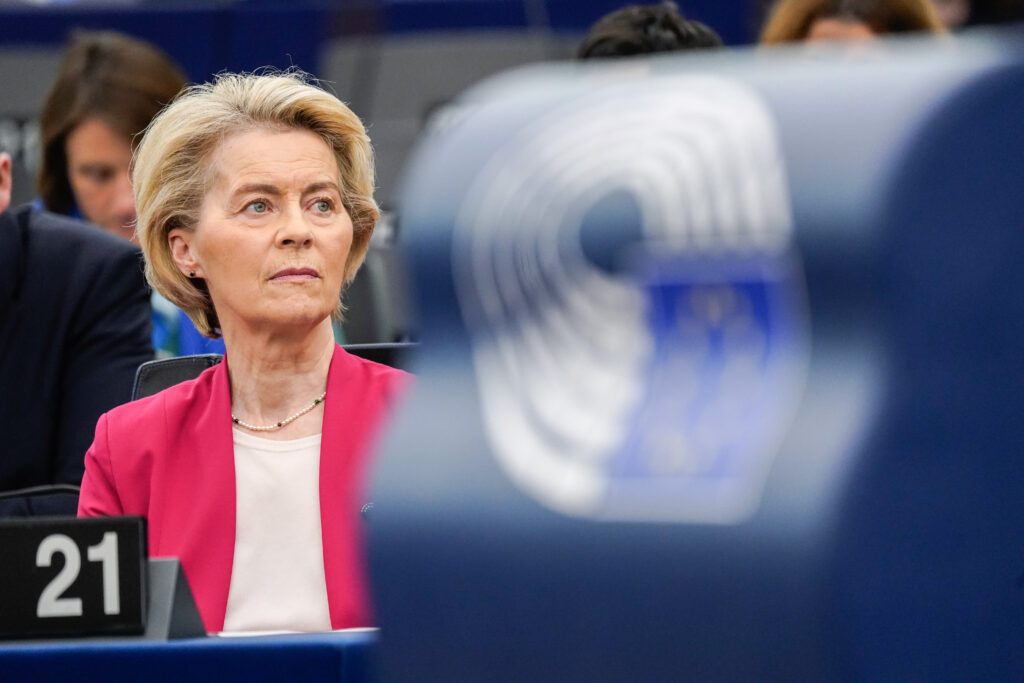Brussels – Affordable and sustainable public transport as a key to social cohesion: That’s the central idea behind the opinion on the “role of quality public services in tackling the high cost of living” adopted Wednesday (April 30) by the Economic and Social Committee (EESC) during the second day of its plenary session. The opinion’s rapporteur, Austrian trade unionist Thomas Kattnig, shared with Eunews his thoughts.
Kattnig speaks of the “milestones of social inclusion and ecological transformation” in describing the importance of affordable public transportation for all. It is about ensuring “access to education, employment, health care, and social participation, especially for low-income families,” he explains.
The #EESCplenary has adopted @EESC_TEN‘s opinion on the price hikes in transport, energy and housing by @ThomasKattnig.
Read more: https://t.co/mI9tZMgqgf pic.twitter.com/IjIaFiRtci
— Workers’ Group EESC (@WorkersEESC) April 30, 2025
On the other hand, it also plays a key role in the climate transition by “replacing private use of cars” and cutting emissions. Public transportation networks must ensure “multimodal solutions” for citizens (both locally and on long-distance routes, from bike paths to railways), offering flexibility and various services so that everyone can use them according to their needs. Moreover, the digital transition “offers new potential for intelligent and integrated mobility services,” enhancing the all-round user experience.
“Transportation poverty”
However, the unionist notes that the elephant in the room is “transportation poverty.” However, a lack of an operational definition of this central concept at the European level hinders decisive action. He defines it as “a condition in which individuals lack access to adequate mobility due to financial, geographic, or infrastructural barriers.” A phenomenon that affects “people in rural areas who lack bus services, low-income individuals who cannot afford tickets, or people with disabilities who lack adequate transportation options.”
Mobility “needs to be recognized and treated as a social right” throughout the EU and protected accordingly to counter the perverse dynamics that lead to “social isolation, reduced job opportunities, limited access to education, and deepening social gaps,” Kattnig said.

What if we ignore the socio-economic dimensions of this phenomenon? “Think of the Yellow Vest protests in France,” the ESC member continues. “They erupted because the rise in fuel prices caused an unsustainable impact on people’s livelihoods.” So we need to get our hands on the community armory: creating new instruments and equipping them with the necessary resources in addition to existing ones (such as the Social Climate Fund) that seem insufficient.
Flexibility and investment
Inevitably, the mobility issue is linked to the other urgencies member states face in this convulsive historical phase. “The current debate on security and defense is necessary,” concedes Kattnig, but “if we don’t invest as many resources in social cohesion, we end up leaving a free field for the growth of the extreme right,” with all the consequences that entail. The trade unionist argues that housing, mobility, energy security, and education are all sides of the same coin, namely precisely that of social inclusion.
How can we achieve these goals? Kattnig reiterates that the EESC calls for “recalibrating” EU rules to “strengthen the social mission of services of general interest,” especially economic ones. These include legal certainty – by protecting public services from the “pure market logic” – to the revision of the budgetary constraints of the Stability and Growth Pact (SGP), as was already done on borrowing for military spending under the ReArm Europe plan of Ursula von der Leyen, expanding the use of the safeguard clause and providing governments with “the right degree of flexibility” to invest effectively in essential sectors such as transportation, energy, education, and health.

We are talking about a change of mindset across several areas. Subsidies and investments in public services should not be considered distortions of competition, for example. At the same time, “social conditionality” criteria should be introduced to be met through parameters of affordability, accessibility, and the public interest of interventions financed with taxpayers’ money. Finally, the Green Deal should be incorporated into the Social Pillar of the Union to redefine services of general interest as “strategic drivers of a sustainable and inclusive transition.”
The impact of Trump’s tariffs
Finally, one cannot overlook the particularly tense international climate, which leaves national governments on edge. The trade tariffs announced by Donald Trump, currently suspended, could “pose a huge problem for the whole world and specifically for Europe,” Kattnig explains. The Austrian trade unionists believe that if they go back into effect, they will cause “greater insecurity for workers, the risk of losing jobs, and increased consumer prices” in Europe and the United States.
Tariffs “are like taxes,” the community executive president recently said, pointing out that “they harm both consumers and businesses.” Kattnig predicts that “by the midterm elections (scheduled for November 2026, ed.), some will advise Trump to withdraw them” because they are not sustainable in the long run. “We have trade agreements already in place. We have the World Trade Organization and various tools to resolve conflicts,” the trade unionist continued, so “we have to go down this path.” Cooperation and dialogue instead of head-on confrontation.

US president Donald Trump (photo: Brendan Smialowski/Afp)
What if that is not enough? In that case, “we will have to react decisively,” putting in place “a coordinated response” that holds together “fair trade rules, protection of strategic industries, and targeted support measures for the hardest hit households.” Not to mention a “digital tax” on the US giants making a fortune selling their services in Europe, fully applying EU regulations (DSA, DMA, and, most importantly, the GDPR) without discount.
English version by the Translation Service of Withub





